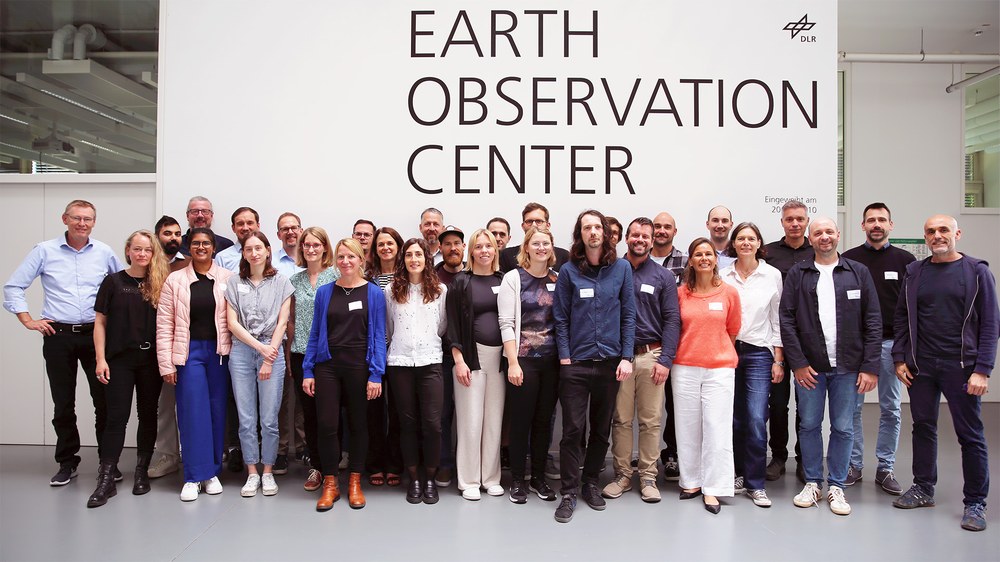Earth observation supports adaptation to climate change in Bavaria

One day after the Climate Adaptation Act (KAnG) came into force at federal level, around 30 scientists came together at the EOC on 2 July 2024 to take part in the kick-off event for the EO4CAM project. EO4CAM (Earth Observation Laboratory for Climate Adaptation and Mitigation) aims to support Bavarian authorities and decision-makers with remote sensing-based information, analyses and scenarios in the definition and evaluation of measures for adaptation to climate change. To this end, a joint expert group is being set up at the German Remote Sensing Data Centre (DFD) and the Earth Observation Research Cluster (EORC) at the University of Würzburg, financed by the Bavarian State Ministry of Economic Affairs, Regional Development and Energy.
Climate change has long since arrived in Bavaria. As the Bavarian State Ministry of the Environment and Consumer Protection's Climate Report 2022 describes, the average annual temperature in Bavaria has risen by 1.9°C since the middle of the 20th century. The consequences of this development are manifold: a change in the distribution of precipitation over the course of the year jeopardises the yield of crops in agriculture and causes drought stress for trees in Bavarian forests. Increasing periods of heat are having a negative impact on the well-being and health of the population, especially in cities. Heavy rainfall events lead to more frequent flooding and loss of valuable soil.
We can partially counteract these developments through adaptation measures. If, for example, areas in the city are unsealed and greened, summer temperatures in city centres can be significantly reduced. Urban climate models are also used to simulate which measures are particularly effective. In agriculture, temporally and spatially high-resolution information on cultivated crops, crop rotations and field shrubs helps to model the effects of changing temperature and precipitation regimes on crop yields.
This is where EO4CAM comes in. The aim of the project is to use information from earth observation data to support the Bavarian authorities in planning their adaptation measures. The focus is on urban areas, agriculture, forestry and the cross-cutting issues of biodiversity, geohazards and health. Data will be accessed via a data portal and standardised interfaces.
Public authority users will be closely involved in the selection and further development of potential earth observation products via dialogue forums. The first user workshop will take place in October 2024. Details on the project can be found on the EO4CAM website EO4CAM.dlr.de.
